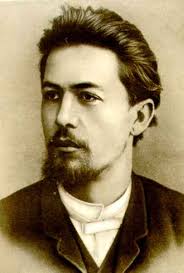Promote reading novels, short stories, fiction, as well as poetry too! I believe reading literature enriches our experiences, our intellect, our imaginations and our over-all personality. It is also great fun!
Writing and reading stories very important! For people wondering why people should read fiction---novels and short stories once in a while, please read this article below.
(Image below sourced from nationalinterest.org)

(This image below of great Russian novelist Anton Chekov sourced from my-chekov.com)

(Image below sourced from hjackson.org)

(Image below sourced from blog.jtimothyking.com)

Writing and reading stories very important! For people wondering why people should read fiction---novels and short stories once in a while, please read this article below.
(Image below sourced from nationalinterest.org)

(This image below of great Russian novelist Anton Chekov sourced from my-chekov.com)
(Image below sourced from hjackson.org)

(Image below sourced from blog.jtimothyking.com)

Reading fiction makes us better copywriters. Anton Chekhov explains why…
Is fiction anything more than a distraction? More importantly, can we start billing clients for ‘reading days’?....
A paper called “In the Minds of Others” in Scientific American (Mind) gives scientific backing to what we’ve suspected all along: writing narrative-based, interesting copy with a distinctive verbal identity is more effective than dry, fact-led product descriptions.
Researchers at Washington University performed MRI scans on people as they read fiction. The picture below shows that when we’re immersed in a good story, our brains respond as if we are feeling or acting just as the character in the story is.
No surprise. Humans have succeeded because we live in societies, and successful co-living depends on empathy. We must have a mechanism for feeling the emotions of others.
But then, the report shows there’s something in narrative structure that does more than just let us empathise with the situation and the key actors. A narrative provides the basis for lasting emotional change.
Cognitive psychologists at the University of Toronto performed a neat little experiment. They took Anton Chekov’s short story, “The Lady with the Little Dog”. It tells how a banker named Gomov meets a young woman called Anna, as she is walking her dog. They begin an affair. They return to their spouses but continue to meet from time to time.
The researchers rewrote the story as the proceedings of a divorce court. Dry, fact-led.
Two groups were studied, before and after reading either the original narrative or the court report. They were measured for how intensely they felt 10 different emotions. The participants who’d read the story version underwent small but measurable personality changes. Some of those changes included becoming more open to new experiences. The readers of the court report did not show changes.
The consequence for copywriters? If you can write a narrative arc for your product description, placing the reader in the position of a product user, then you have a chance of creating empathy in them and leading them to be open to new experiences.
Dry, fact-led copy can’t do this. However good the product is.
Chris
PS When I was a copywriter at Leagas Delaney, a bemused client walked in. It was Andrew Neil, ex-editor of the Sunday Times. He couldn’t understand why it took us a day to write 8 words, when his lads could do a thousand before breakfast.Finally, we have an answer.
Newspapers, like court reports and bullet point descriptions, are for product facts, instantly understood.
Good copy is for a reader’s emotions, instantly changed.
Although, I wish I’d just said, ‘Fifty million people know my headline, “You never actually own a Patek Philippe. You merely look after it for the next generation.” How many people can remember the Times’ headline from this morning
Researchers at Washington University performed MRI scans on people as they read fiction. The picture below shows that when we’re immersed in a good story, our brains respond as if we are feeling or acting just as the character in the story is.
No surprise. Humans have succeeded because we live in societies, and successful co-living depends on empathy. We must have a mechanism for feeling the emotions of others.
But then, the report shows there’s something in narrative structure that does more than just let us empathise with the situation and the key actors. A narrative provides the basis for lasting emotional change.
Cognitive psychologists at the University of Toronto performed a neat little experiment. They took Anton Chekov’s short story, “The Lady with the Little Dog”. It tells how a banker named Gomov meets a young woman called Anna, as she is walking her dog. They begin an affair. They return to their spouses but continue to meet from time to time.
The researchers rewrote the story as the proceedings of a divorce court. Dry, fact-led.
Two groups were studied, before and after reading either the original narrative or the court report. They were measured for how intensely they felt 10 different emotions. The participants who’d read the story version underwent small but measurable personality changes. Some of those changes included becoming more open to new experiences. The readers of the court report did not show changes.
The consequence for copywriters? If you can write a narrative arc for your product description, placing the reader in the position of a product user, then you have a chance of creating empathy in them and leading them to be open to new experiences.
Dry, fact-led copy can’t do this. However good the product is.
Chris
PS When I was a copywriter at Leagas Delaney, a bemused client walked in. It was Andrew Neil, ex-editor of the Sunday Times. He couldn’t understand why it took us a day to write 8 words, when his lads could do a thousand before breakfast.Finally, we have an answer.
Newspapers, like court reports and bullet point descriptions, are for product facts, instantly understood.
Good copy is for a reader’s emotions, instantly changed.
Although, I wish I’d just said, ‘Fifty million people know my headline, “You never actually own a Patek Philippe. You merely look after it for the next generation.” How many people can remember the Times’ headline from this morning

No comments:
Post a Comment